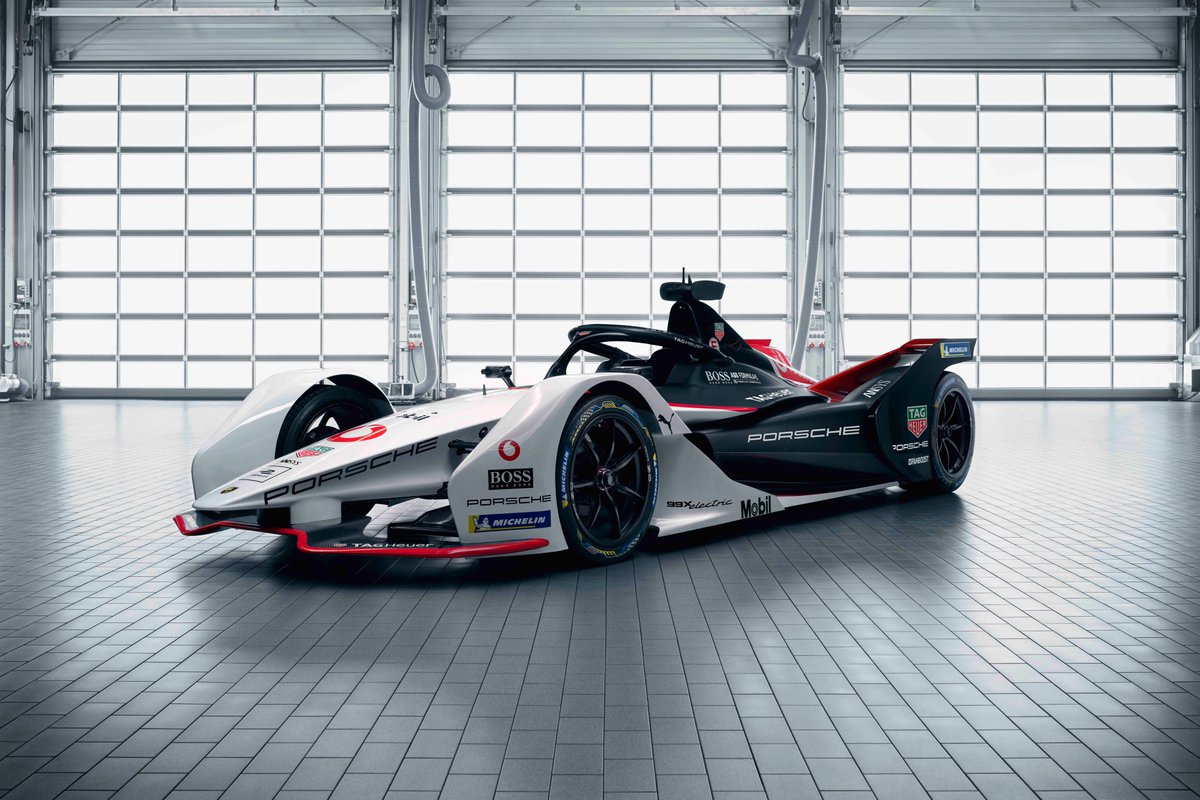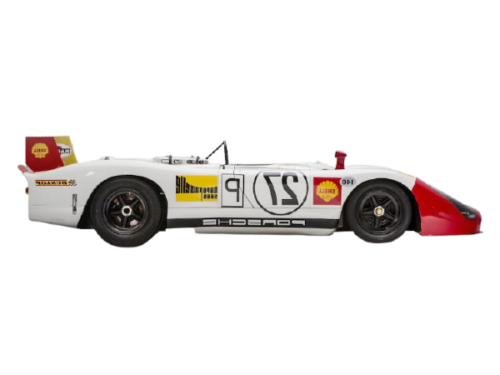Spark Formula E with Porsche 99X powertrain (2019)
Tech specs
| Power in qualification | 250 kW |
| Power in race | 200 kW |
| Power in race, Attack mode | 235 kW |
| Power in race, Fanboost mode | 250 kW |
| Acceleration 0-100 km/h (62 mph) | 2.8 sec. |
| Top speed | 174 mph/280 km/h |
| Battery capacity | 54 kWh (52 kWh usable) |
| Voltage | 800 V |
| Minimum allowed weight incl. driver | 900 kg/1984 lb |
| Battery weight | 385 kg/849 lb |
| Dimensions | 5160 x 1770 x 1050 mm, wheelbase 3100 mm |
| Brakes (in addition to motor braking) | Brembo carbon discs, 278 mm front, 263 mm rear |
Formula E is the world’s first purely electric racing series and was launched on the 2014/15 season. The FIA, which is also responsible for Formula 1, has organised the series to make a statement in favour of electromobility and to get more young people excited about motorsport. Unlike most other series, the season begins in the autumn and ends in summer. The race venues are specially designed street courses in the heart of major cities, meaning the sport comes to the spectators – and not the other way around. Electromobility is playing an important role in the mobility, especially in urban environments.
Season 1 2014/15: For the first season all teams used the Spark-Renault SRT_01E car designed as collaboration between Spark Racing Technology, McLaren Electronic Systems, Williams Advanced Engineering, Dallara and Renault. Although every race lasts for less than an hour, the batteries could not last that much in full racing mode, so the drivers had to come to the pits to change their cars (every driver had 2 cars). The car change was very cool to watch.
Season 2 2015/16: Audi joined through ABT team, others manufacturers were Renault, Citroen, Mahindra, NextEV (Nio).
Season 3 2016/17: Jaguar joined
Season 4 2017/18: no changes
Season 5 2018/19: Spark provided the teams with new gen2 Formula E cars. The cars now had double the energy and range, making the car change obsolete. BMW joined as a factory team. The team count is now 11.
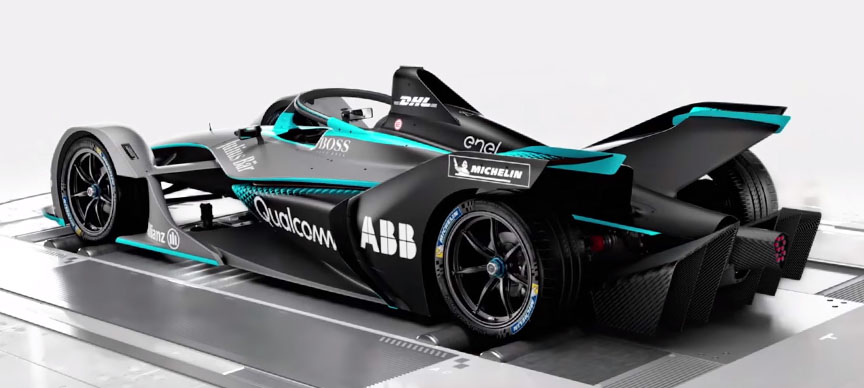
All teams have the same cars and batteries, but powertrains are created by the teams. Porsche rolled the Formula E test car out to the track in Weissach on March 5, 2019.
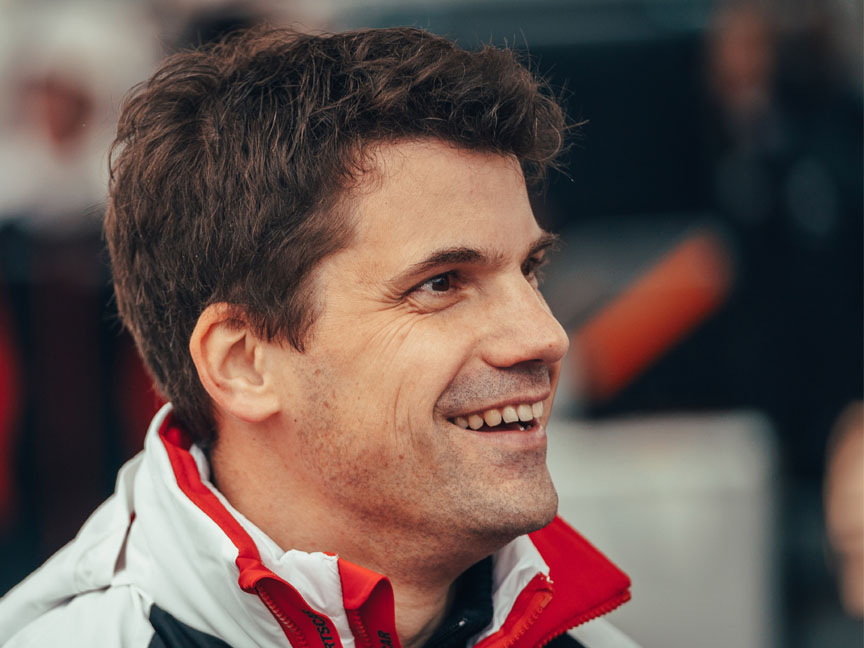

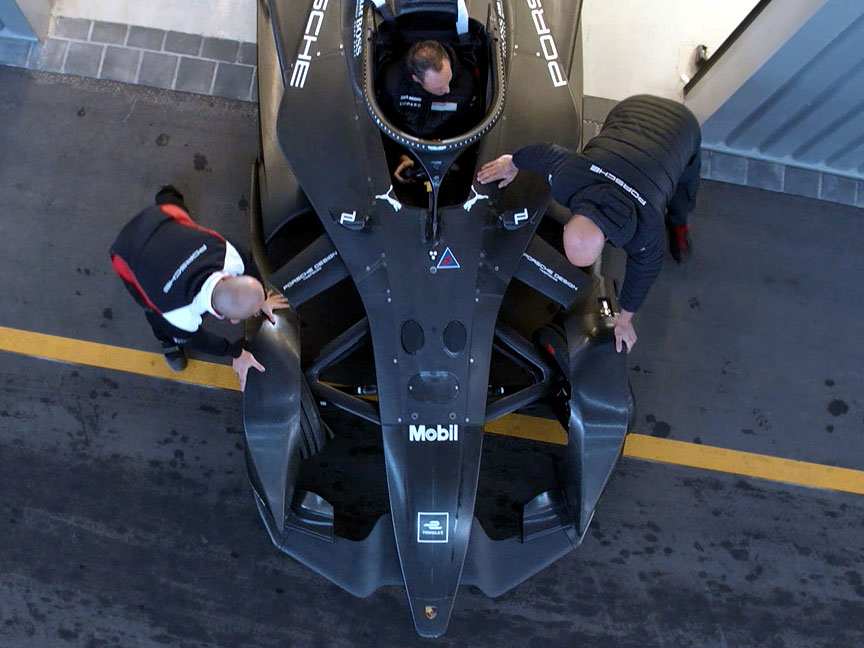
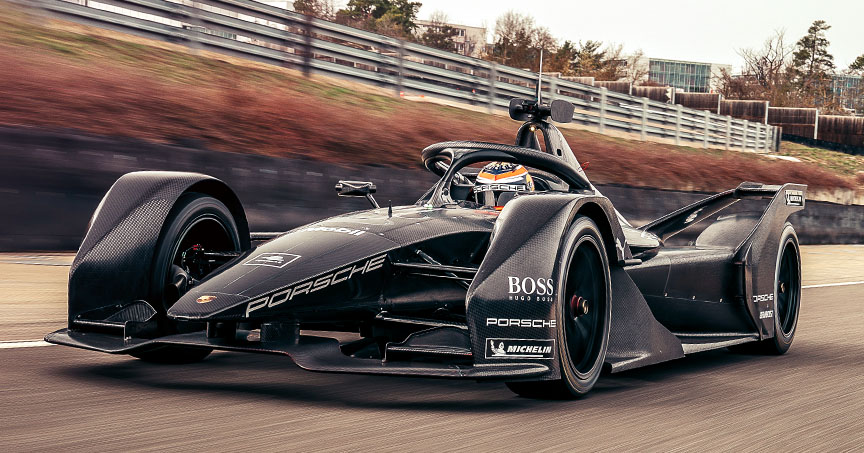
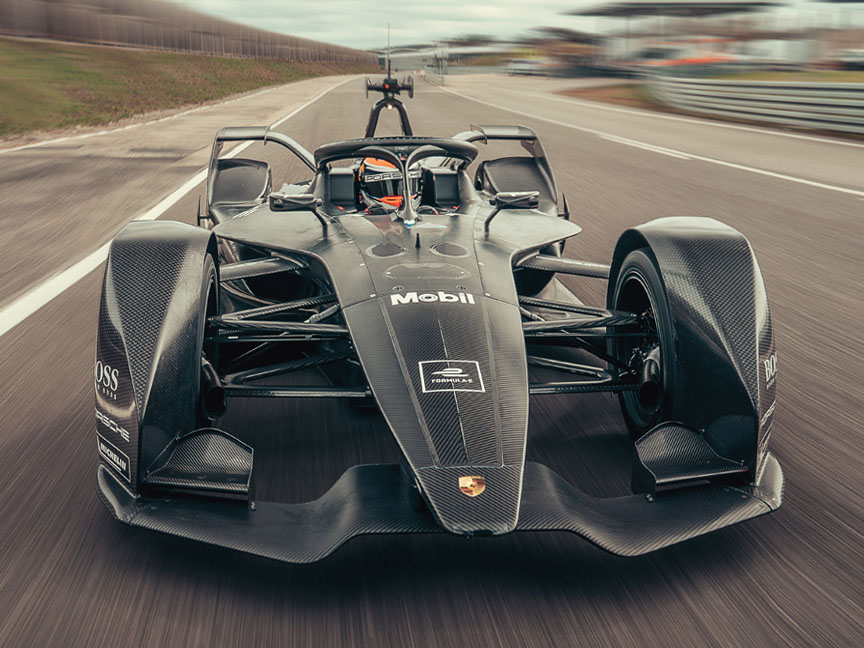
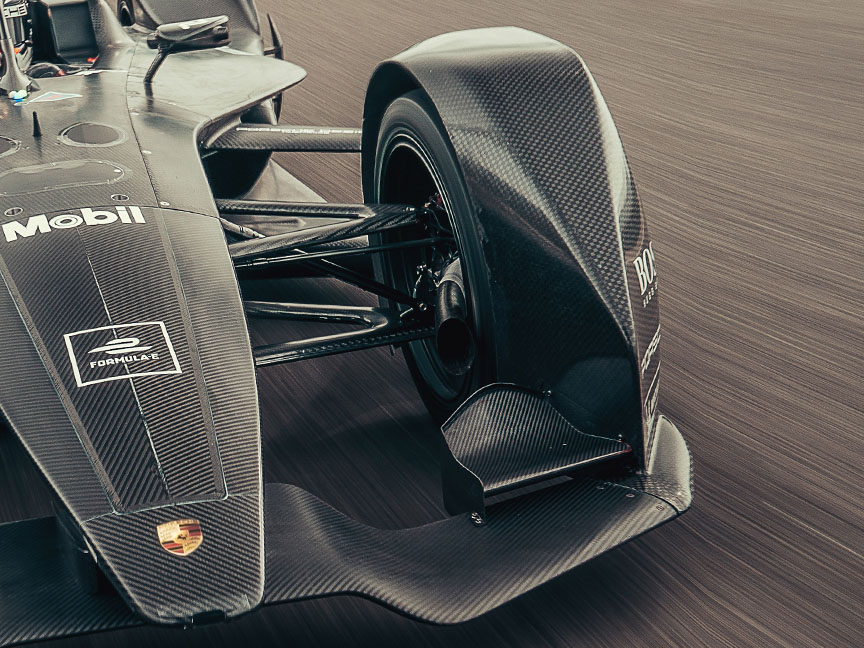
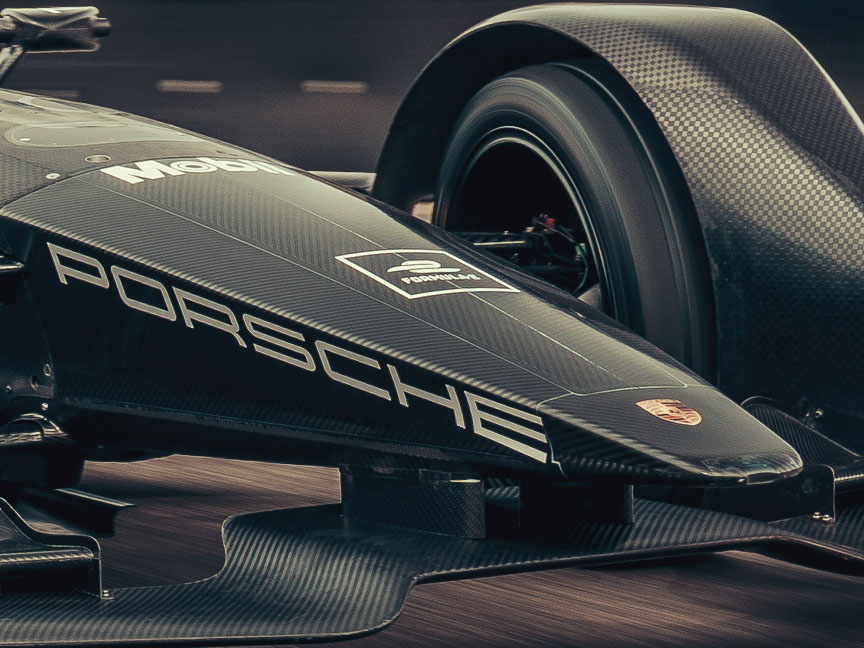
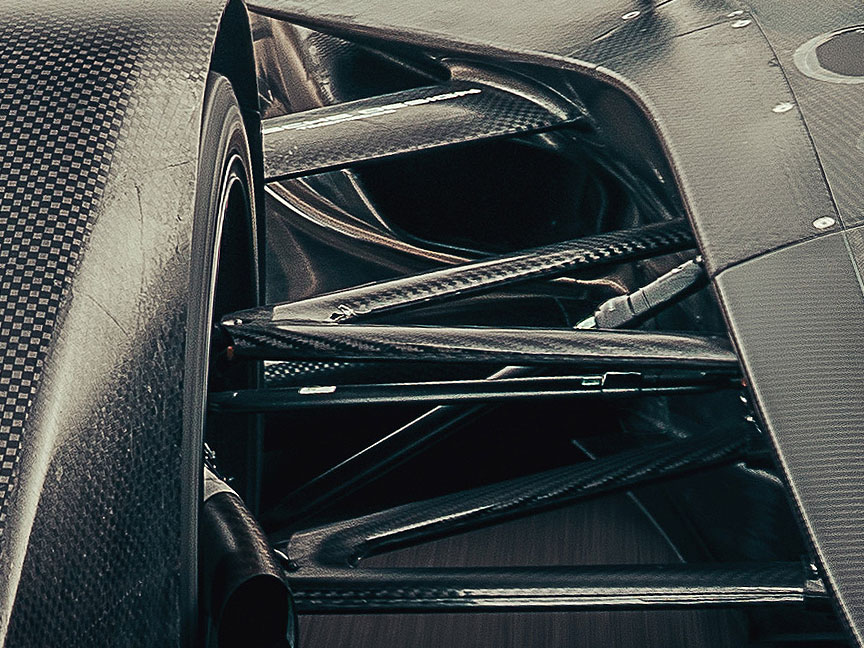
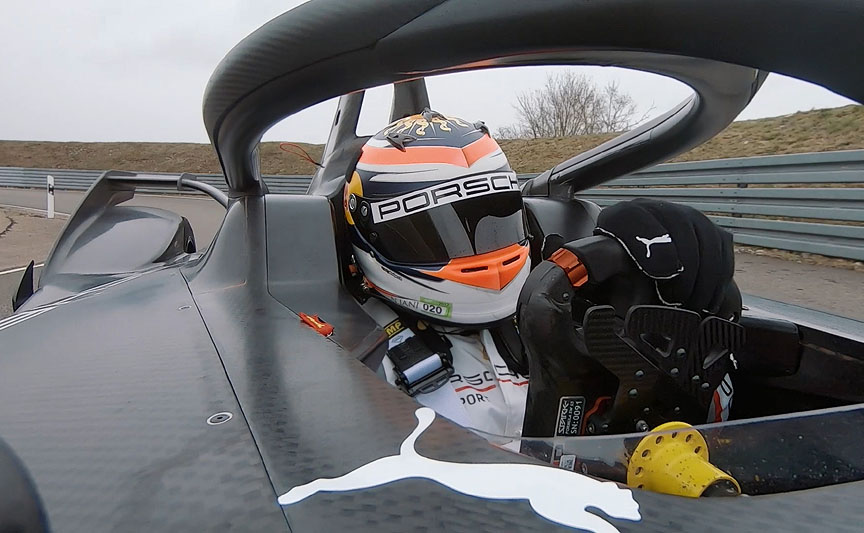
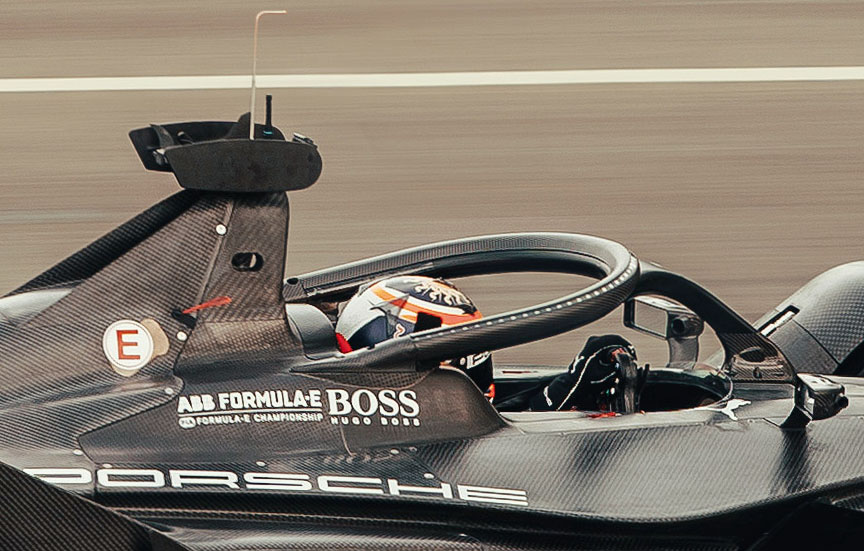
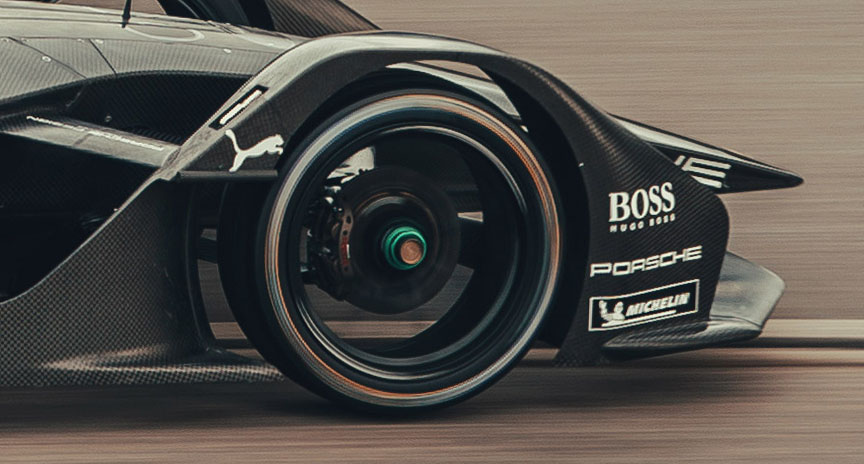
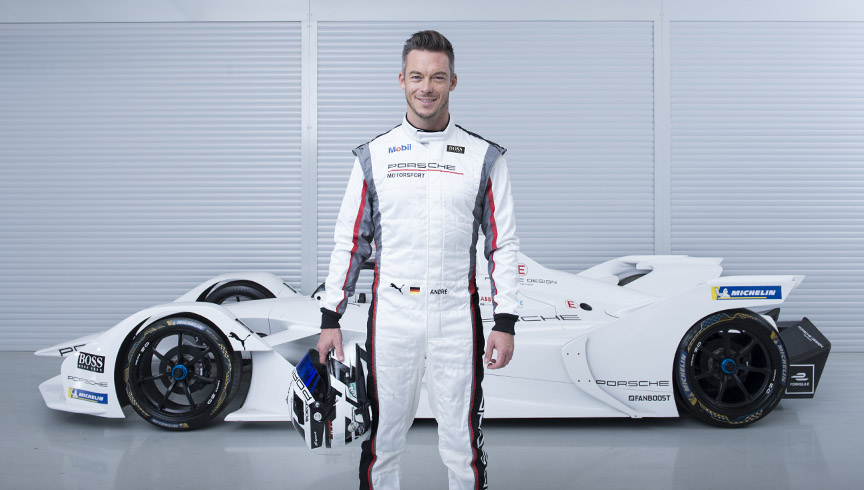
The racing livery of the Spark Formula E with Porsche 99X Electric drivetrain was unveiled on August 28, 2019.
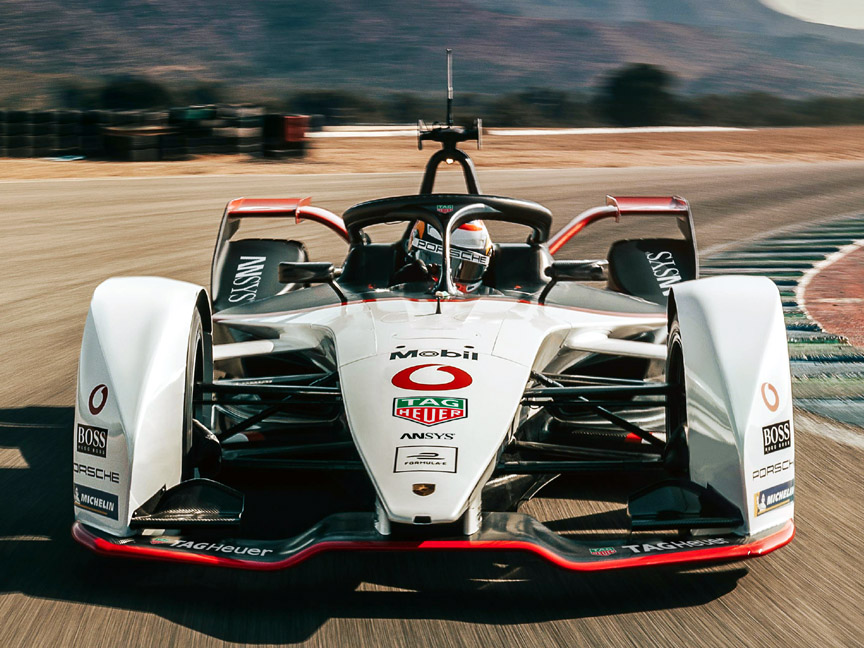
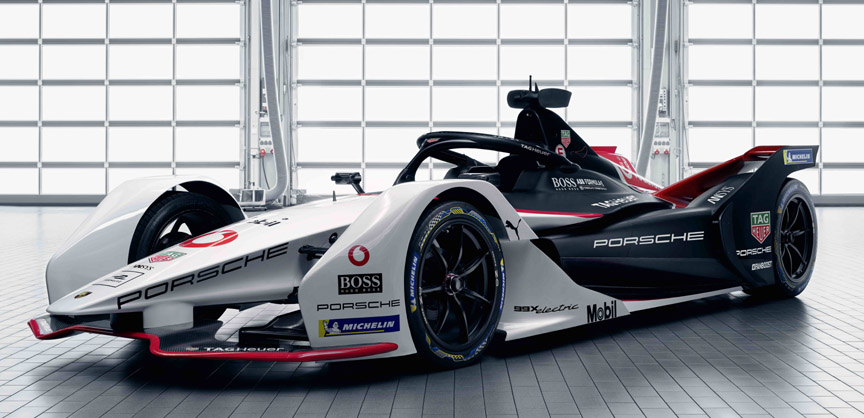
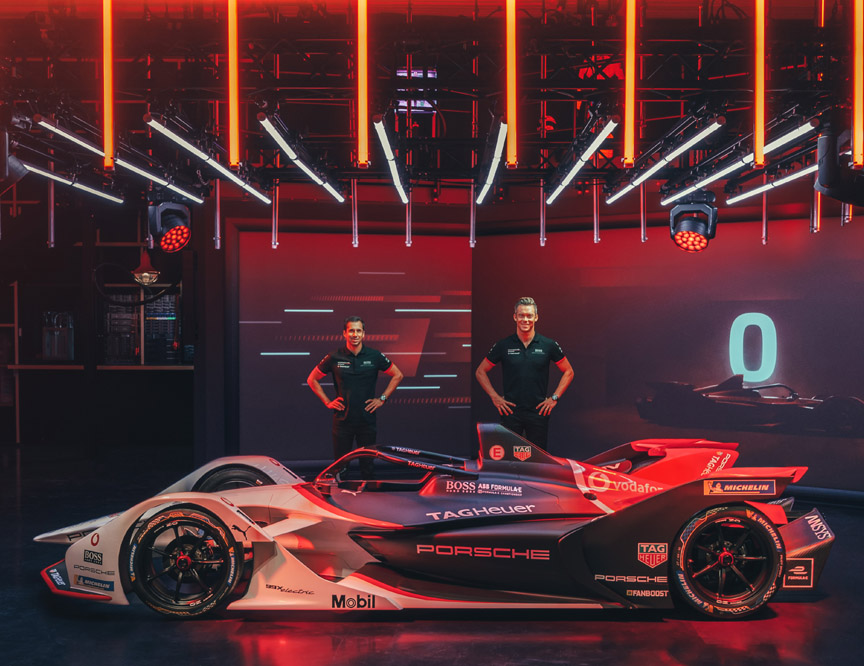
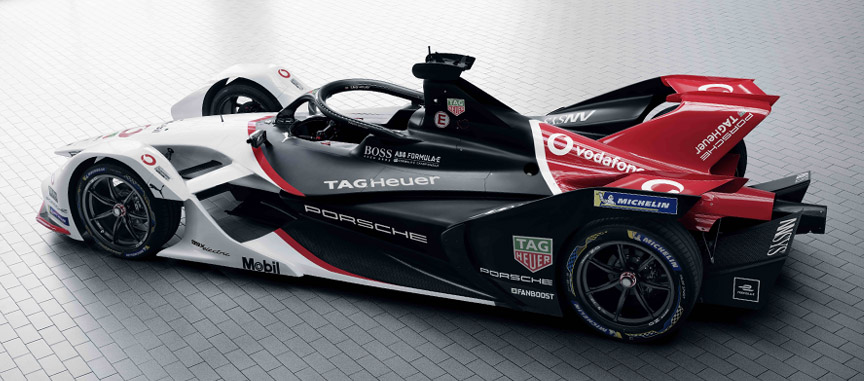
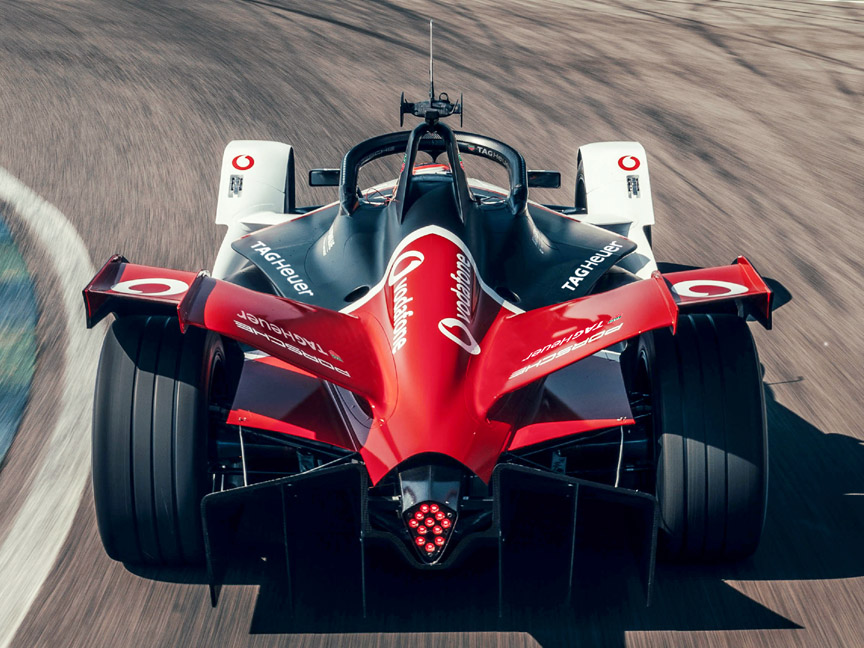
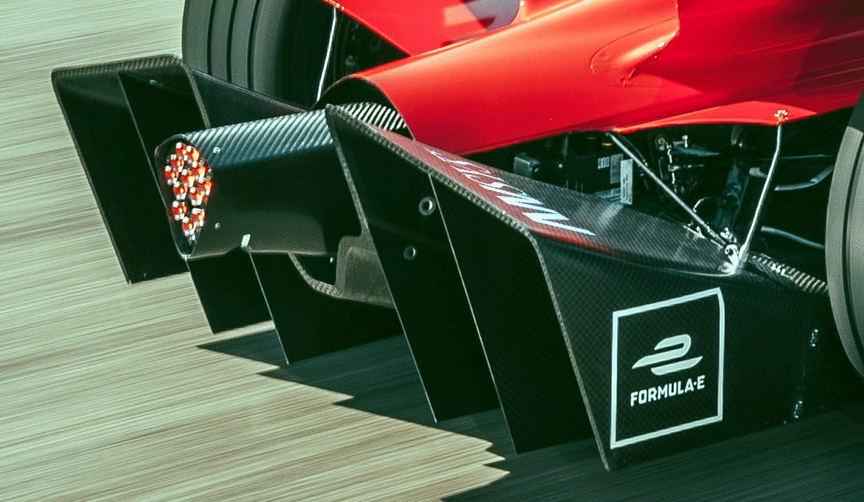
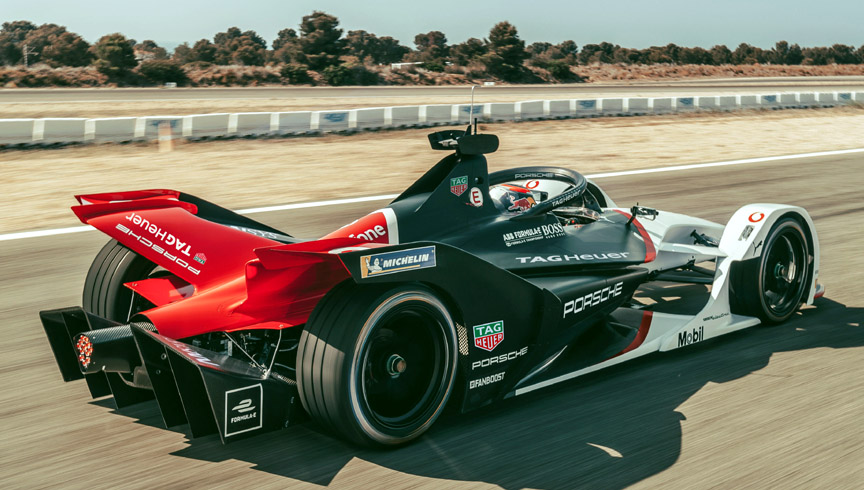
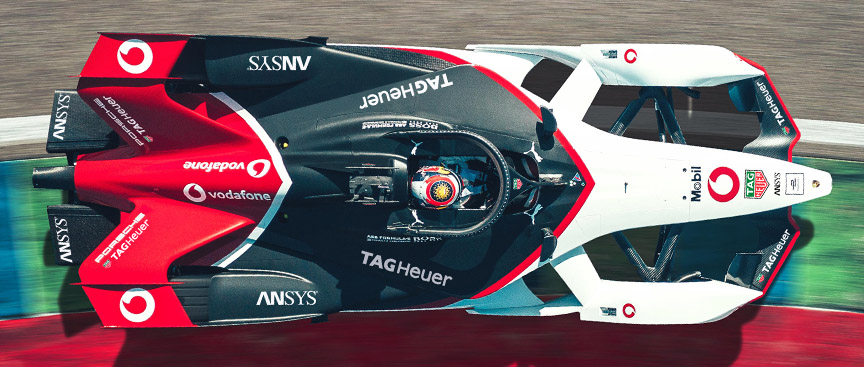
Scoring system
Qualification winner: 3 points
1st place 25 p, 2nd 18 p, 3rd 15 p, 4th 12 p, 5th 10 p, 6th 8 p, 7th 6 p, 8th 4 p, 9th 2 p, 10th 1 point
Fastest lap: 1 point
Considering the races are held on narrow street circuits, the qualification result is very important for the race result. In addition to crashes, the order of the race cars might be shuffled thanks to the 2 Attack Modes every driver has in a race. The Attack Mode is a 4 minute period with power boosted. In addition to that there is the FanBoost system. The 5 drivers who manage to get the biggest number of fans to use the Formula E app, will get their cars bumped up to 250 kW for 5 seconds during the second half of the race. Voting for the favourite drivers starts 6 days prior to the race and ends 15 minutes into the race.
Season 6 2019/2020
News of the season are that the Attack Mode power is up from 225 to 235 kW and HWA racing team was formed into Mercedes-Benz racing team. Porsche joined the carousel as the 12th team. Every team has two cars, so the number of drivers is 24.
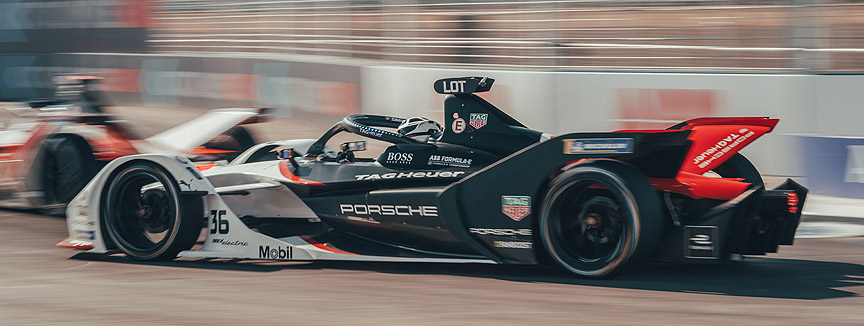
Thanks to good driving and misfortune of others, André Lotterer managed to bring unbelievable second place to the Porsche Formula E team in the first race.
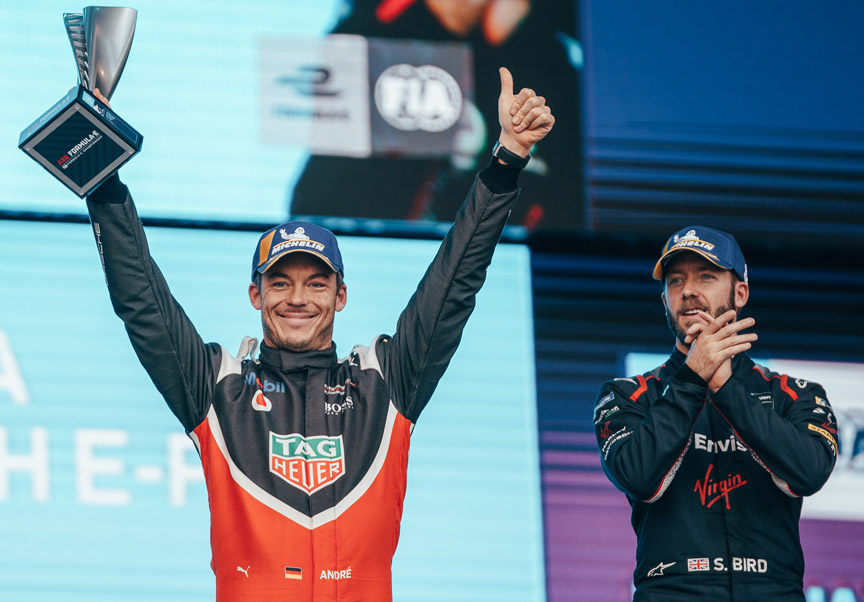
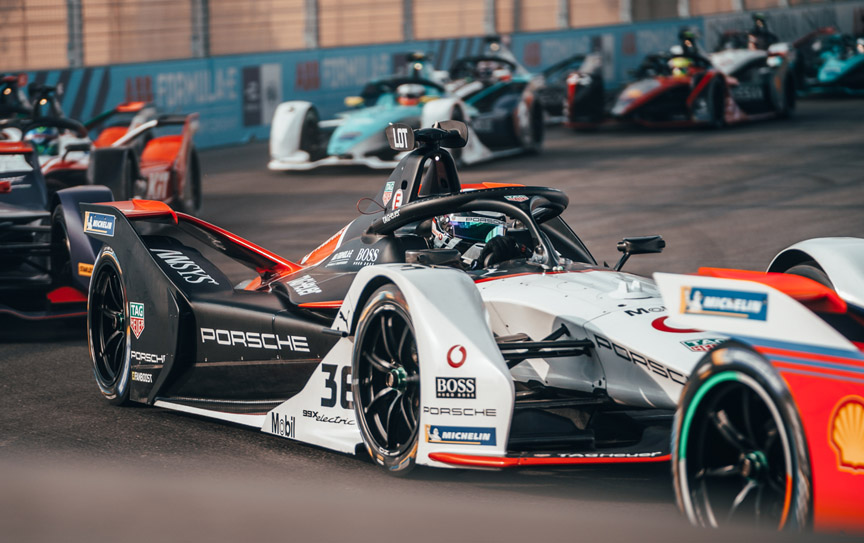
Diriyah’s 2nd race results changed a lot after post race penalties to Max Günther, André Lotterer, Felipe Massa, Mitch Evans, Nyck De Vries, Qing Hua Ma, mostly for undertaking during safety car period. Oliver Turvey was disqualified for using energy over the regulatory limit. André Lotterer, who finished 6th, later received 14th place and Neel Jani rised from 17th to 13th place thanks to many drivers dropping past him after penalties.


